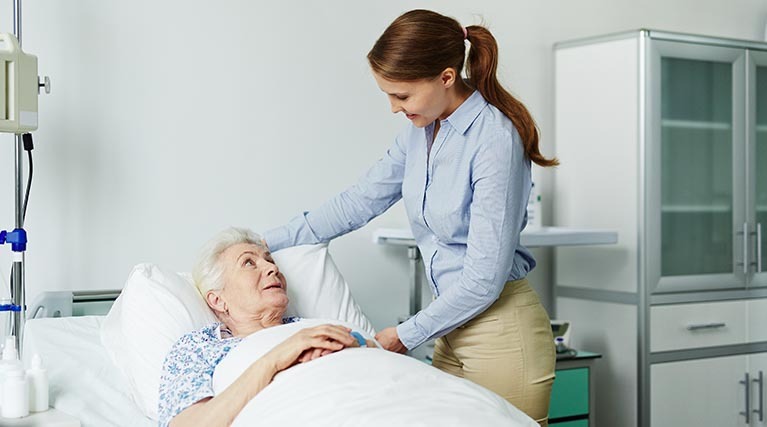Hospital Companion
Hospital Companion Training for Your Employees
Penn Foster’s online Hospital Companion Training Program will prepare workers to perform the day-to-day patient care tasks aligned with activities of daily living (ADLs), including changing, dressing, and helping patients bathe and toilet. Additionally, the program will teach learners how to establish and maintain a clean and sanitary environment for the patient and ensure that established safety and infection control practices are observed.

What Your Learners Will Study
- Activities of daily living (ADLs) including cleaning and bathing patients, repositioning and transferring patients between beds and wheelchairs, and monitoring and reporting on patients’ health concerns and status.
- To assist with patient lift equipment, fall precautions, and patient safety policies.
- To identify changes in patient condition, including physical and behavioral changes, and report them to the appropriate patient care team member.
- To establish and maintain a clean and sanitary environment for the patient.
Hospital Companion Training Curriculum
Average completion time: 1-3 mo
Through the online Hospital Companion Training curriculum, workers will develop the skills essential to working one-on-one with patients and the larger patient care team in order to provide excellent quality of care. Online courses cover topics such as:
- Communication and Customer Service
- Patient confidentiality and HIPAA
- Use of adaptive equipment to support Activities of Daily Living (ADLs)
Our Partners
Our Proven Training Model
Online Delivery
Engaging Content
Robust Support
Real World Credentials
Related Programs
$name
$name








